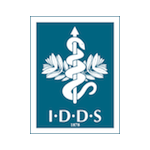 When it comes to dental issues, wisdom teeth are something that most patients will deal with at some point. Wisdom teeth usually emerge when patients are between the ages of 17 and 25 years old. Some patients are fortunate enough to have their wisdom teeth erupt without problems and they line up behind their second molars.
When it comes to dental issues, wisdom teeth are something that most patients will deal with at some point. Wisdom teeth usually emerge when patients are between the ages of 17 and 25 years old. Some patients are fortunate enough to have their wisdom teeth erupt without problems and they line up behind their second molars.
When your wisdom teeth start to make their grand debut, it can be painful. If they happen to be impacted, that slight annoyance or discomfort can become quite debilitating as there is not enough room for the teeth to come through. What does this mean? It means that your wisdom teeth are lodged in your jawbone and are unable to expose themselves.
And although you may not see any signs of your wisdom teeth, that doesn’t mean they aren’t painful. Below are a few indicators that you may have impacted wisdom teeth:
- Jaw Pain: Pain in the back of your jaw is a very common indicator of impacted wisdom teeth. The pain is usually concentrated around your gums.
- Changes in the Mouth: You may notice changes in your mouth when you have impacted wisdom teeth. Swelling in the jaw, bleeding gums, excessive redness of your gums may be indicators that you have impacted wisdom teeth.
- Chewing Problems: If you develop chewing issues you may have impacted wisdom teeth. You may have difficulty opening your mouth due to impacted wisdom teeth.
- Headaches: If you suddenly start having headaches in conjunction with some of the issues mentioned above, they may indicate impacted wisdom teeth.
The Solution
If you think your wisdom teeth are coming, best solution is to schedule an appointment for a comprehensive examination. If your wisdom teeth are impacted, removal will alleviate any symptoms you may be experiencing. Dr. Wittrig and his staff will review the details of wisdom teeth removal surgery and will help you determine the best course of action for your situation.







